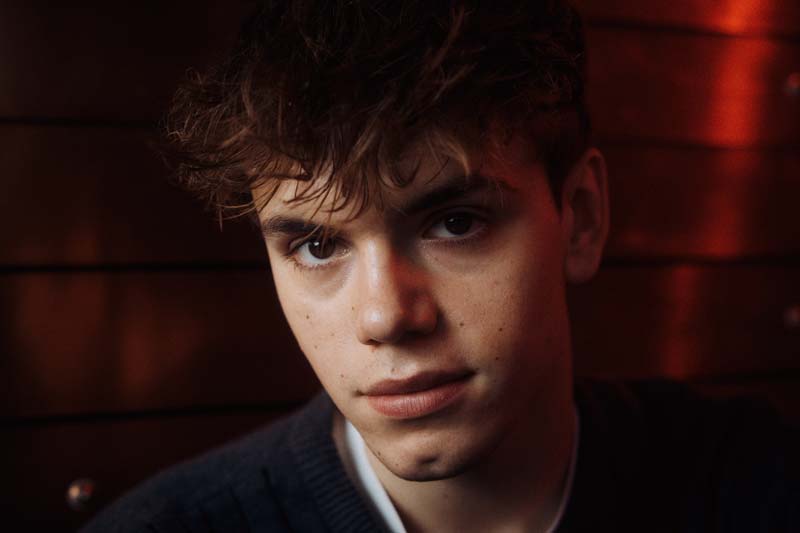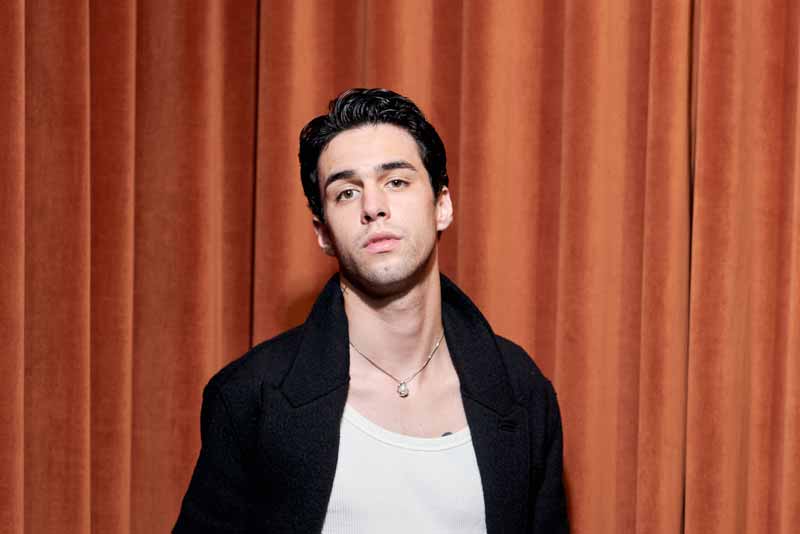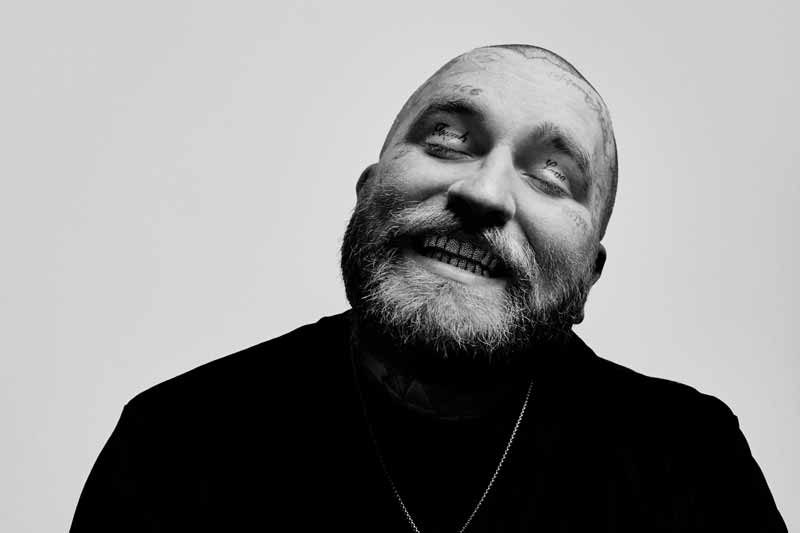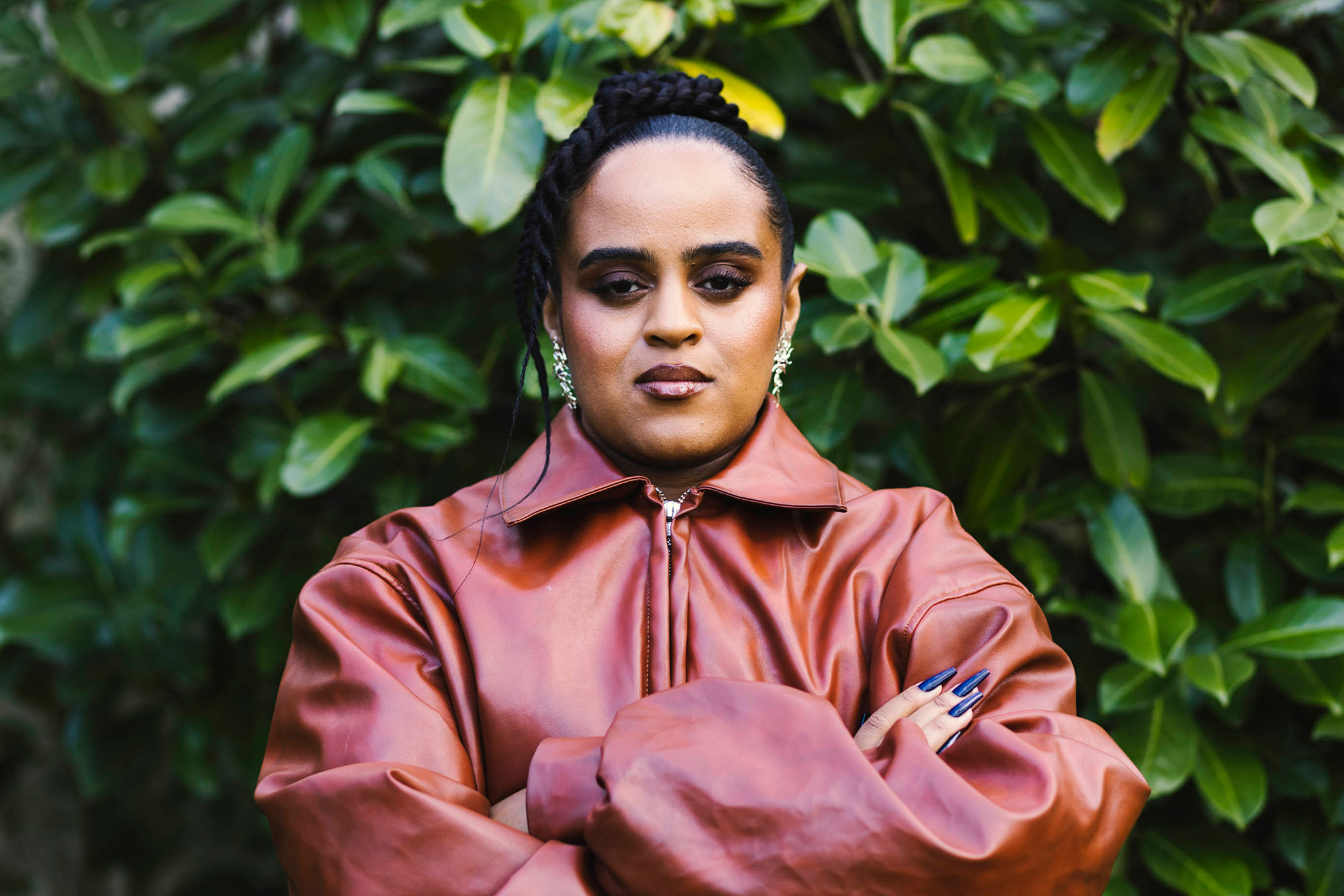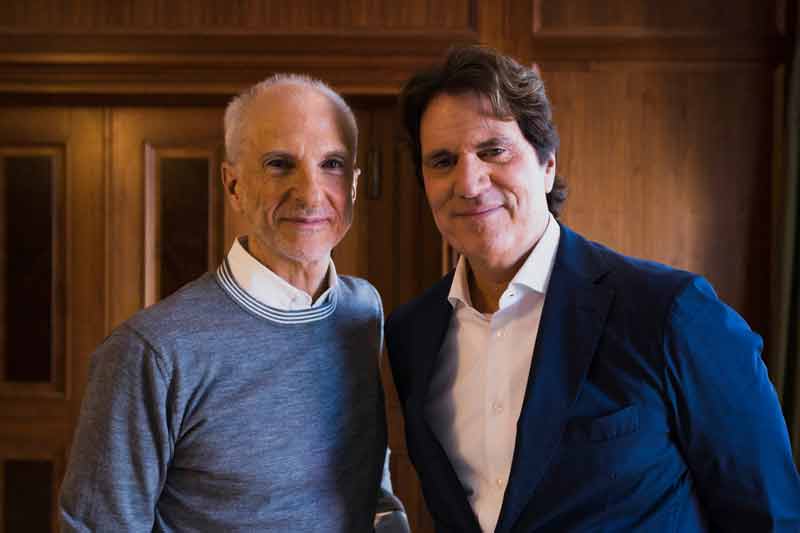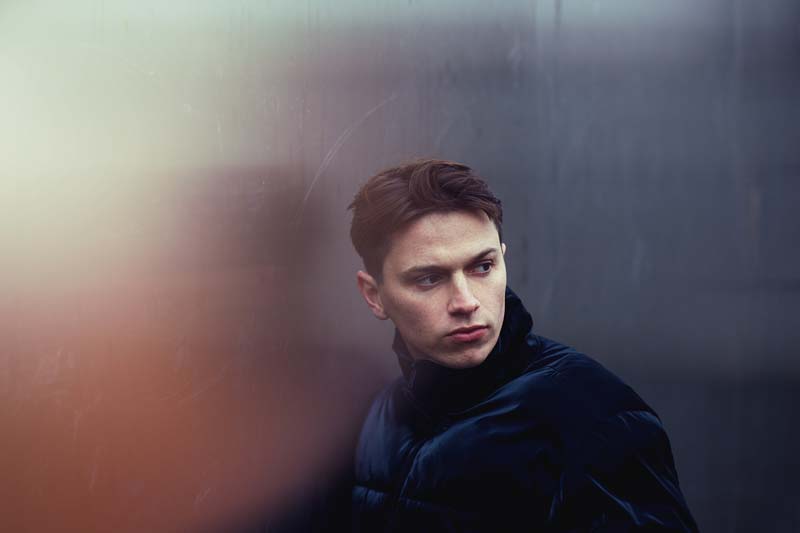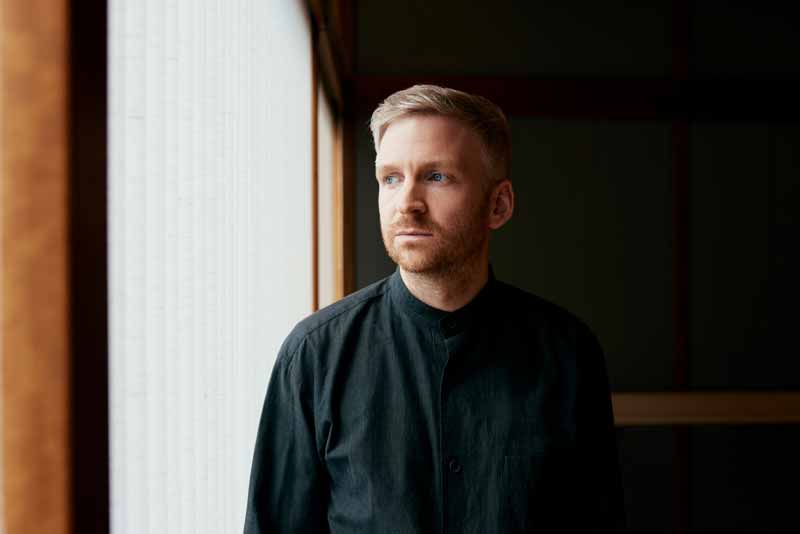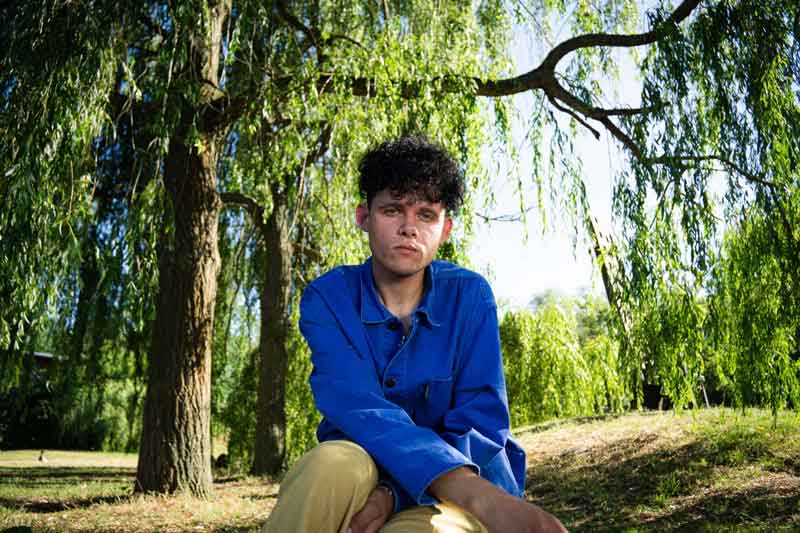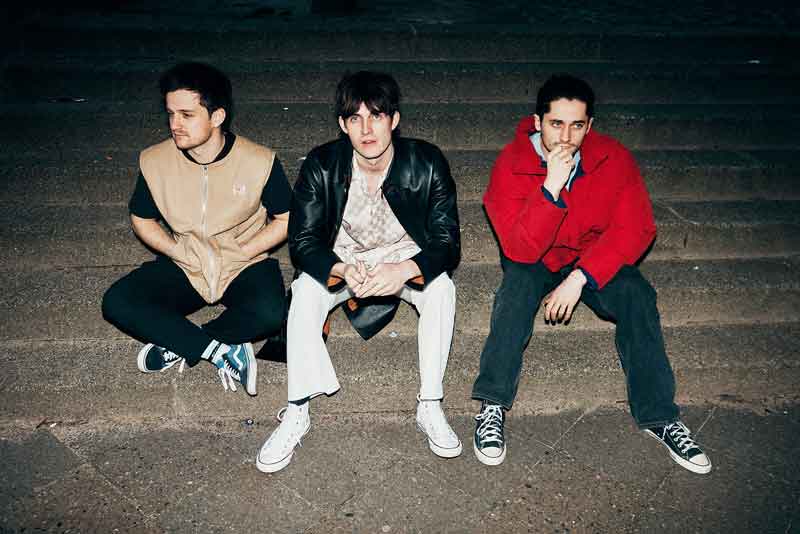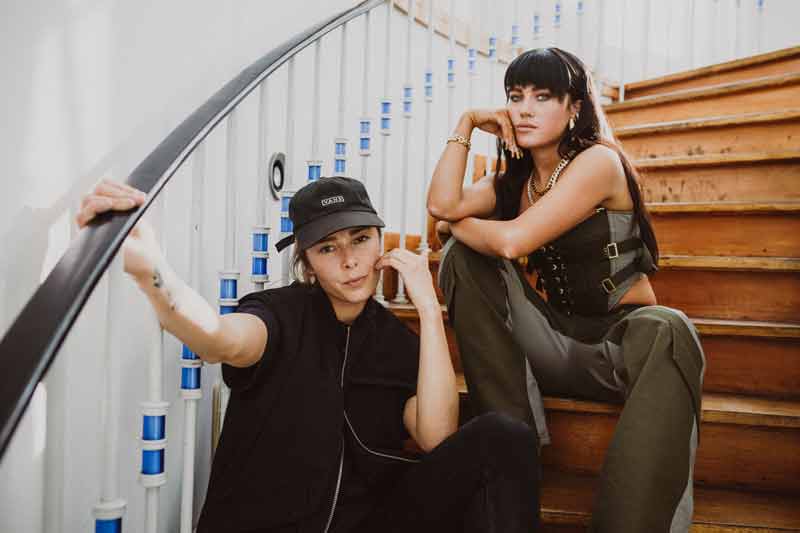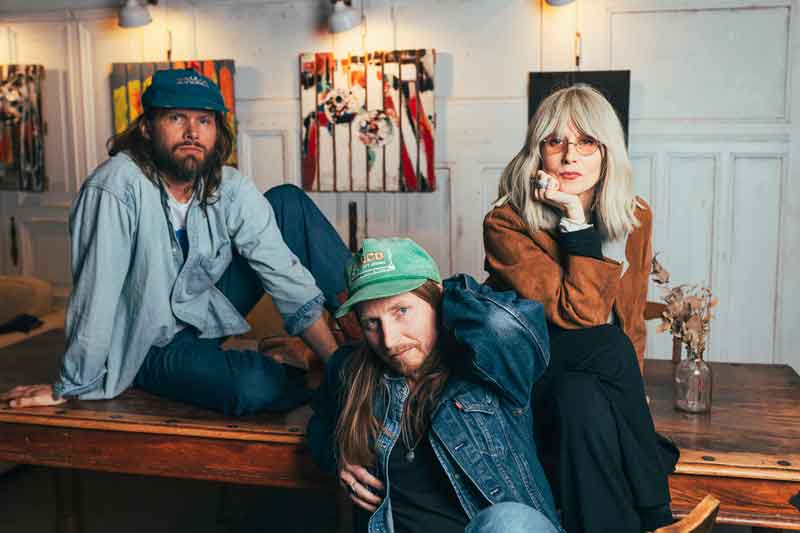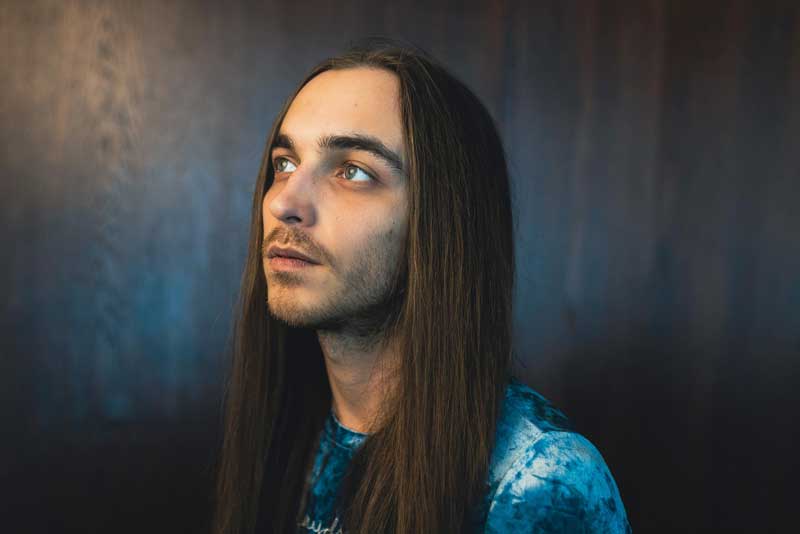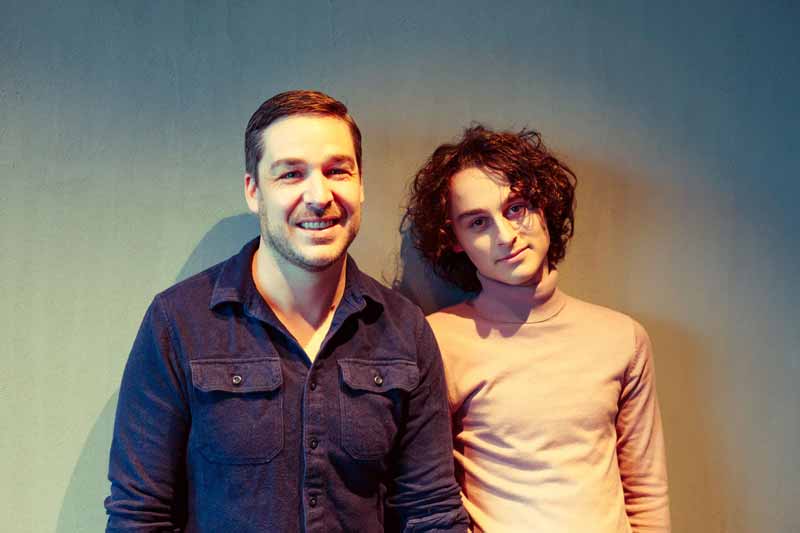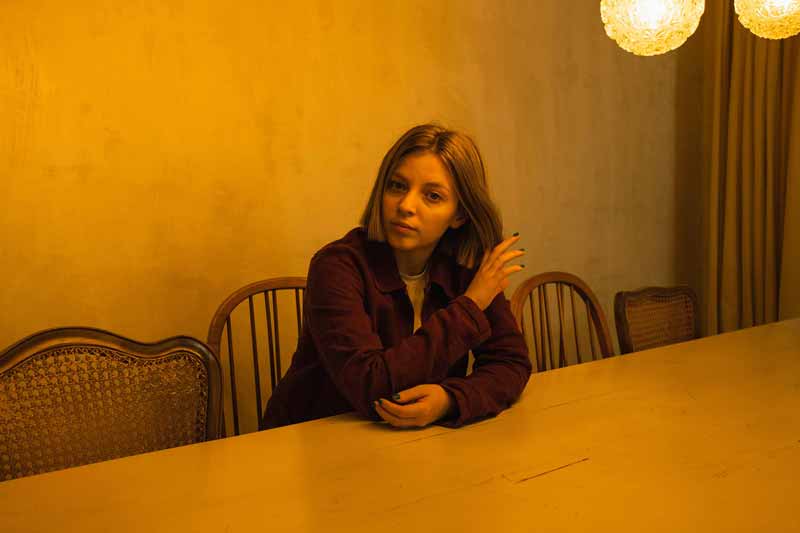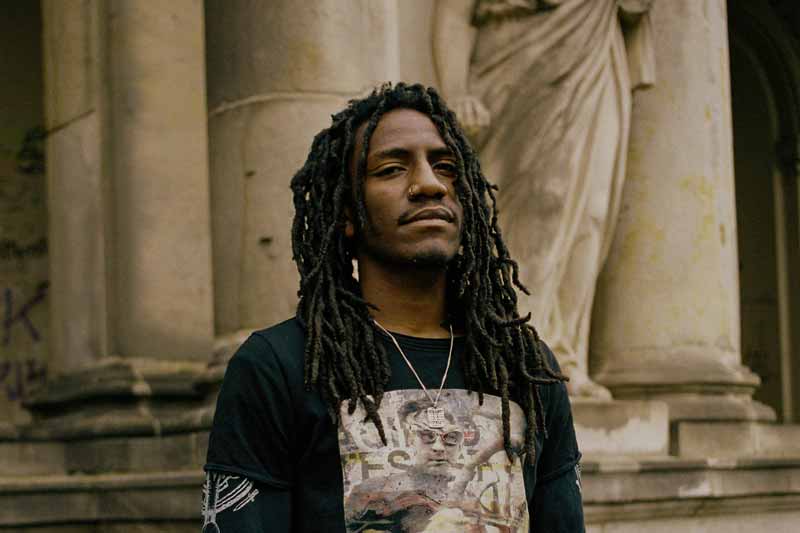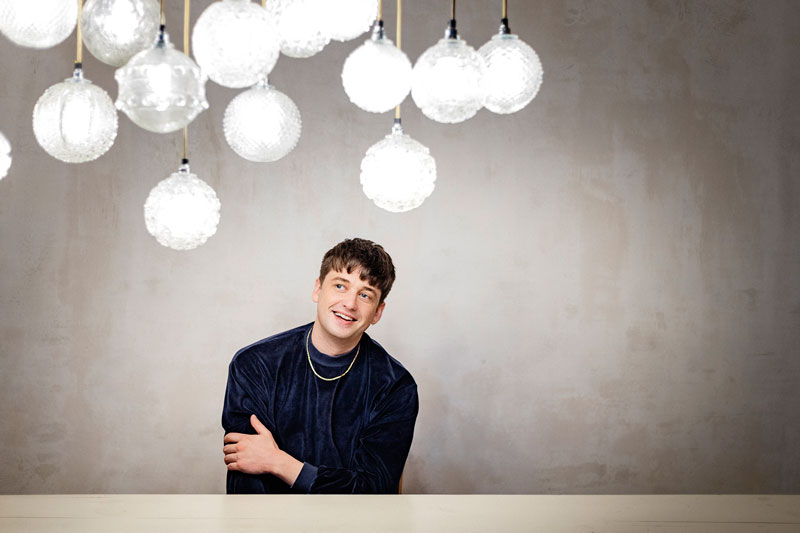Interview — Milk.
A Lack of Fear
In early 2019, Milk., a four-piece pop band from Dublin, Ireland, arrived on the scene with their debut single, »Drama Queen.« A couple more catchy songs later and they now find themselves ready to release their first EP. An interview about the meaning of pop, the importance of having no fear, and the charm of a glass of milk full of drugs.
17. Juni 2020 — MYP N° 29 »Vacuum« — Interview & text: Jonas Meyer, Photography: Gerry Balfe Smyth
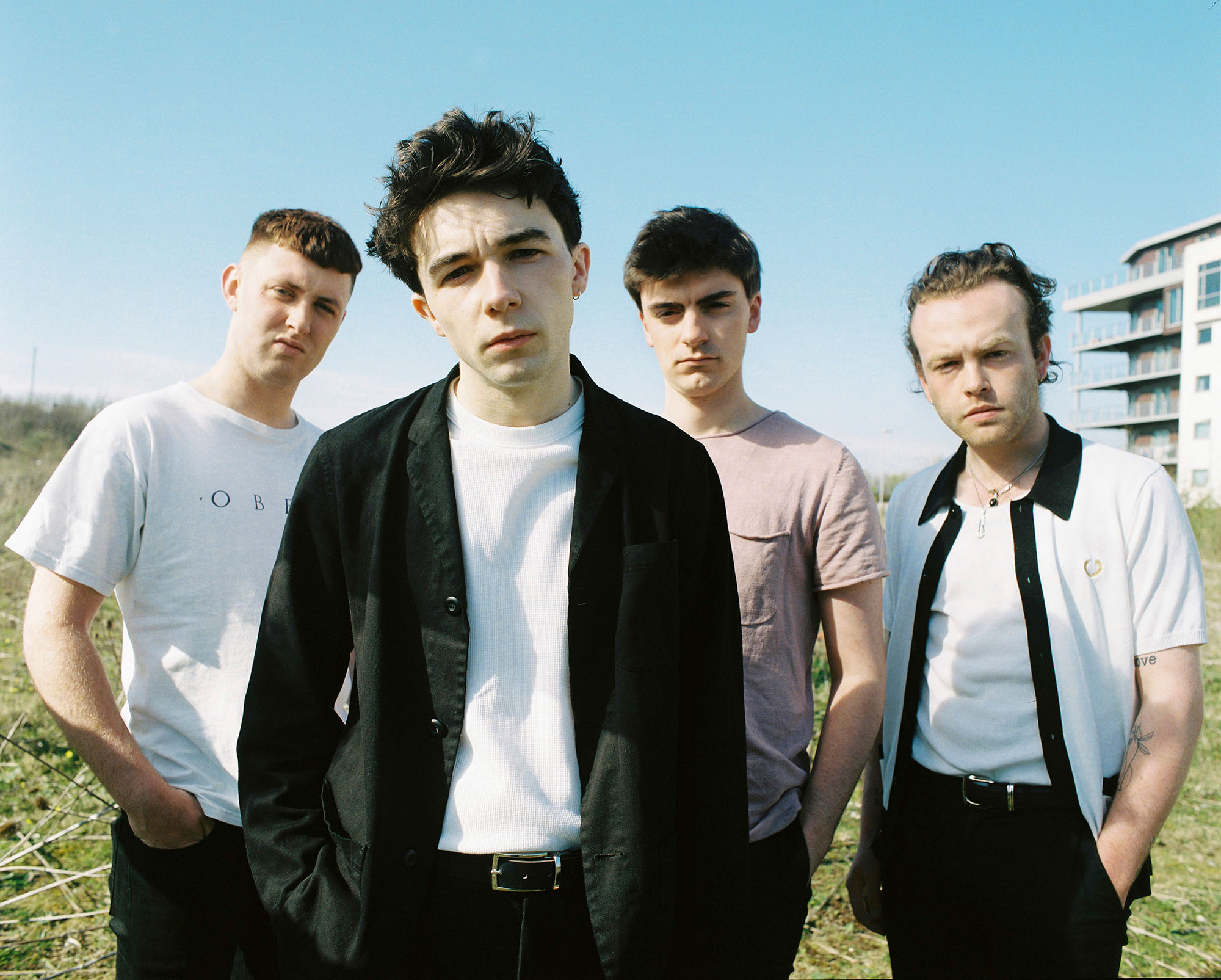
Imagine you had fallen in love with someone and you had to describe that person to someone else—but not based on their own individual attributes, but only in comparison with others: hair like friend X, smile like friend Y, humor like friend Z. The more you compare, the closer you get to the result. But in the end, it remains an approximation that cannot really describe the human as they truly are.
This is a problem that young bands face, at least since music journalism began. As soon as new talents enter the stage, the Great Book of Comparisons is opened, and equivalencies are trotted out. Milk., a self-described “four-piece pop band based in Dublin,” also went through that very experience. As soon as they released their debut single “Drama Queen” in early 2019, the first references to major bands placed upon them (at this point we do not mention them by name).
But these comparisons are not necessary at all. The music that Mark McKenna, Conor “Gormy” Gorman, Conor King, and Morgan Wilson have created stands on its own—because it thrives on duality. Their songs sound dreamy but determined, with melodies both light-hearted and sticky, and a language both sloppy and honest. “Opposites attract”—there seems to be something in this saying.
Anyone who hasn’t stumbled across Milk. on one of the numerous music reviews or official Spotify playlists may have found the band by following Gerry Balfe Smyth on Instagram, a Dublin-based photo artist with a talent for portraying people, among them the four members of Milk. Or one may have watched Wayne, a YouTube Originals series in which Mark McKenna—who is also an actor—plays the main character.
Mark has spent the last few months in Los Angeles, but not entirely voluntarily. He was only in the city for short filming, and would have flown back long ago, were it not for a sudden pandemic that put the whole world in lockdown. With no flights going back to Dublin, he was suddenly stuck in LA. But since the four guys are very easygoing, we managed to have a virtual interview across three time zones while Gerry has agreed to contribute some of his photos.
Irish helpfulness at its best. Meanwhile, Mark has made it back to Dublin, last we heard.
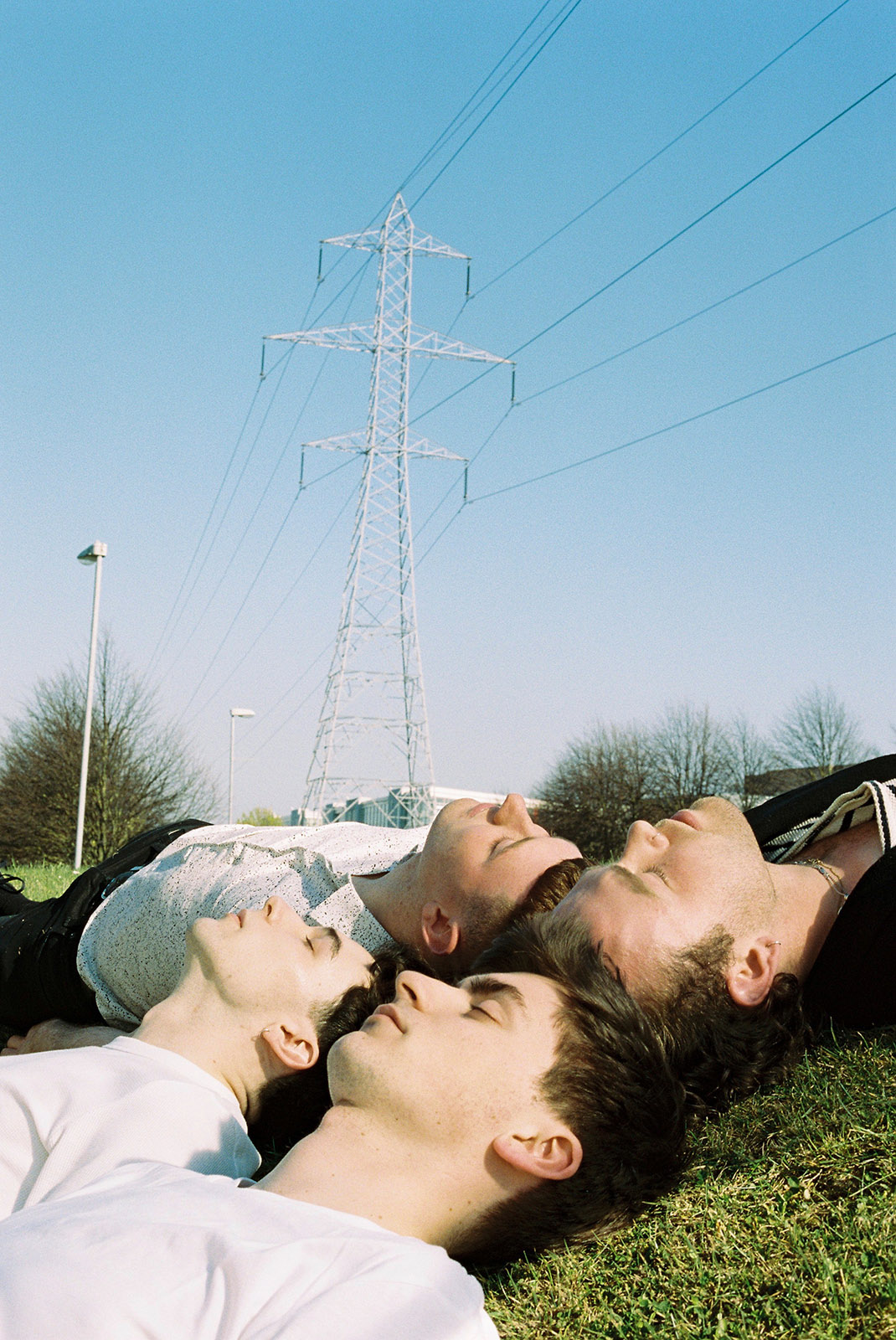
»We’ve had to figure out a lot of stuff on our own.«
Jonas:
In early 2019, you guys released your very first song, “Drama Queen,” followed by three other song releases and lots of live gigs. How do you look back on the last 15 months?
Mark:
It’s kind of strange. By the time we released “Drama Queen” we had been a band for a while, but we also had been waiting until we were actually ready to go. We didn’t just want to release that single and then sit around, waiting for the next move. We kind of planned ahead fairly noisily because we really wanted to catch the momentum—a momentum which is luckily still going on right now. From today’s perspective, having four singles in the air and our first EP coming out, it was such a gradual thing and, when the change did come along, it was kind of what we were planning to happen.
Conor K:
I would say there’s been a lot of learning curves in the last 15 months. It’s just the four of us plus Adam Redmond who produces all the songs. There’s no others, no manager, no agents. We’ve had to figure out a lot of stuff on our own which I think will help us in the future. That’s why I’m very glad we did that.
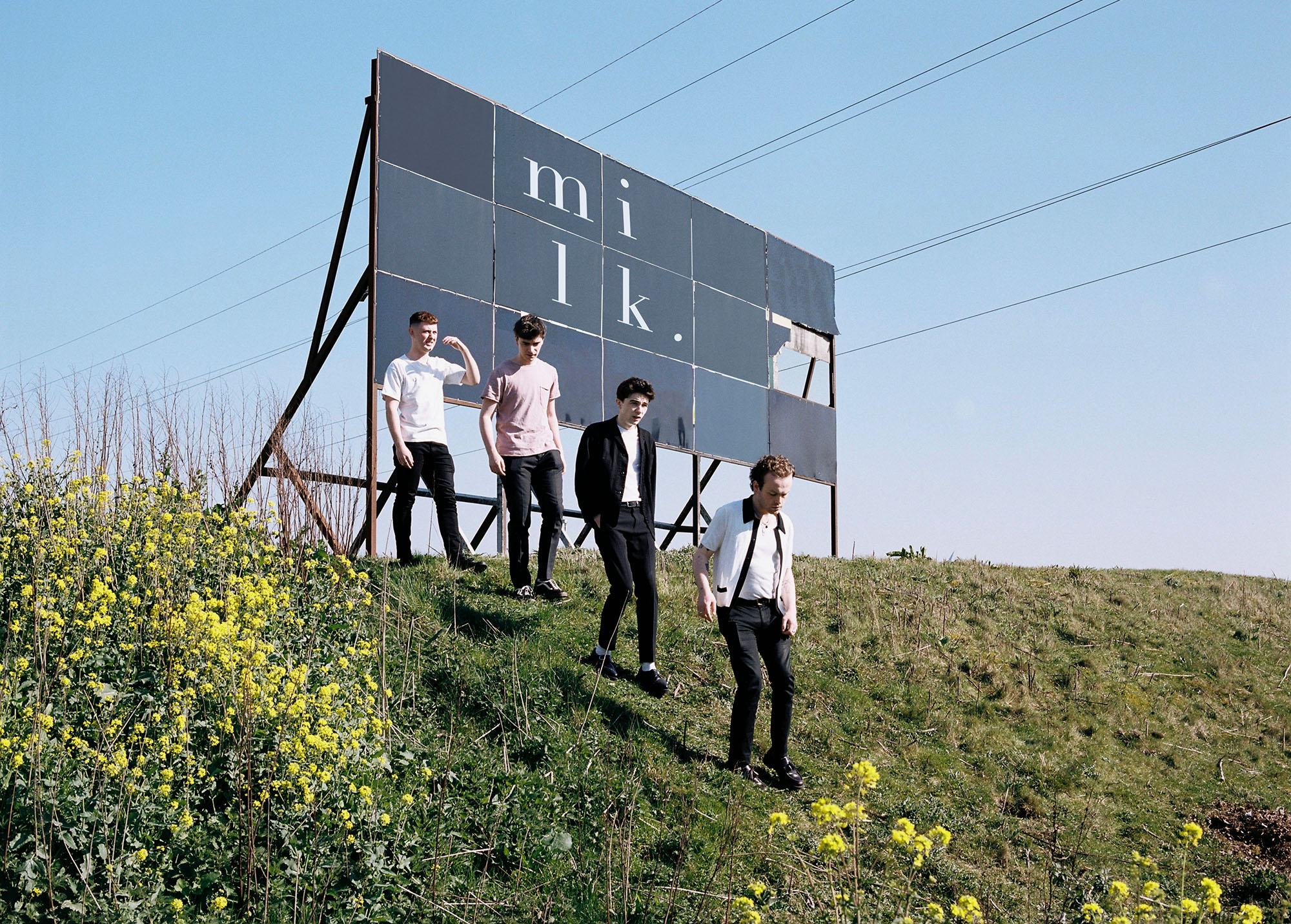
»Let’s be honest, some of these compliments are just numbers.«
Jonas:
What is it exactly that you’ve learned?
Conor K:
For example, when we released “Drama Queen,” Gormy physically uploaded it to CD Baby and then it was on Spotify. All of us were emailing to each other, asking “Do you have to log in for this?” or “How do we do this?” It was really DIY-kind of stuff…
Morgan:
… and a lot of it got easier with each single we put out. I feel we became more and more familiar with the process each time. Like Conor was saying, we all gain from doing it by ourselves.
Jonas:
And suddenly you have to deal with lots of compliments from all sides: excited audiences, benevolent reviews, features on Spotify and other platforms. Is it hard to keep a clear head when you’re surrounded by all these voices elevating and celebrating you?
Conor K:
Let’s be honest, some of these compliments are just numbers, like views on YouTube or streams on Spotify. And these numbers are something that can easily distract you. You never know how they refer to people who are actually into action, who are actually into our music. I would rather have a thousand people who are really into a song than ten thousand people who stream it casually and don’t listen to it again.
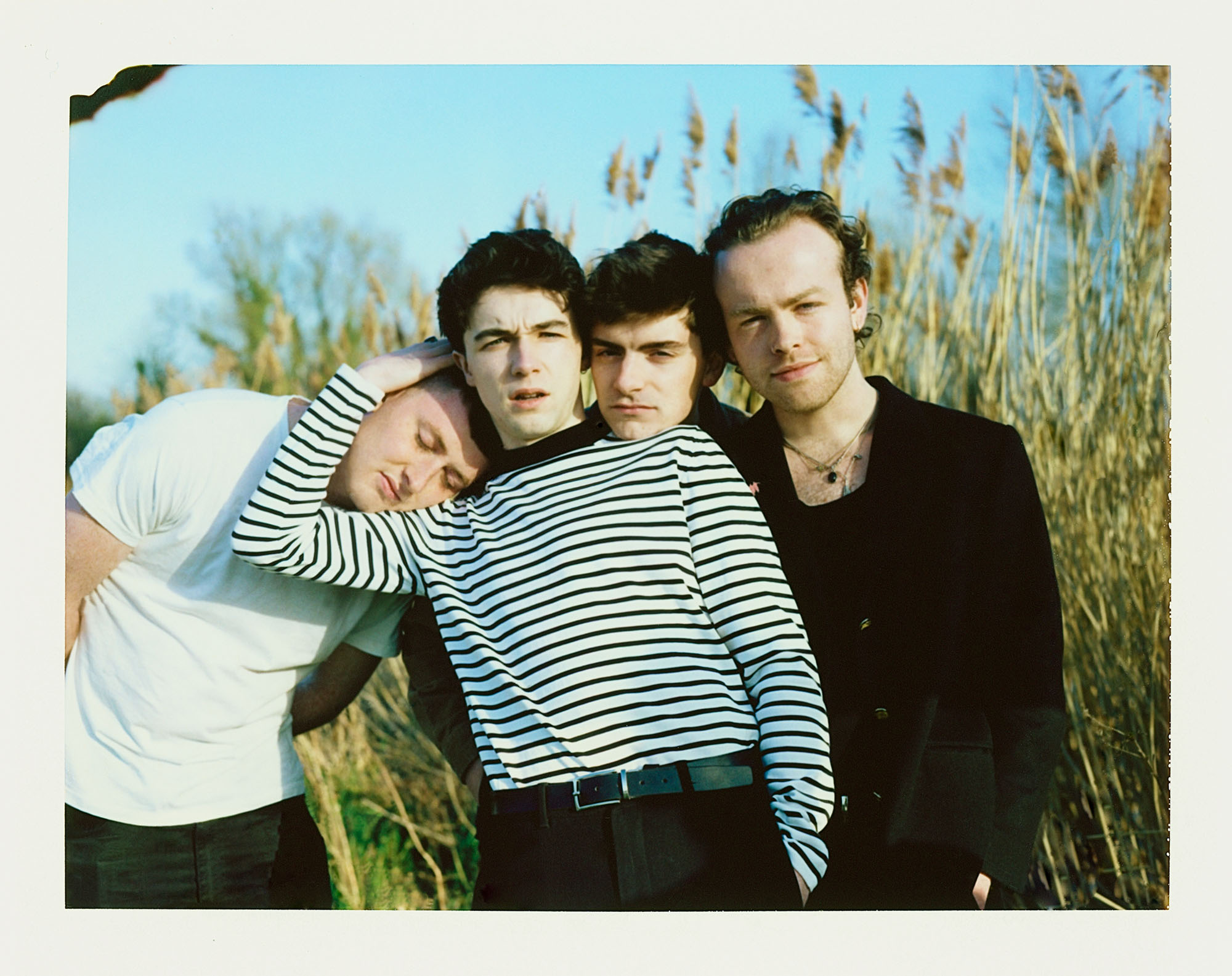
»I have to confess that I made the story more dramatic for the song.«
Jonas:
Let’s stay with your first single for a moment. What’s the origin story behind “Drama Queen?” Did you have someone specific in mind when you were writing it? Or is it simply a musical answer to Lesley Gore or The Chiffons from the 1960s?
Mark (smiles):
No, it was basically an answer to my first relationship and referring to my ex-girlfriend’s birthday party. We broke up just before that party, the song is dealing with my experience of how weird it was trying to stay friends while apparently not really being friends at that time. But I have to confess that I made the story more dramatic for the song, there was no screaming or crying at all. It’s still one of the coolest parties I’ve ever been to, and we’ve become real friends later.
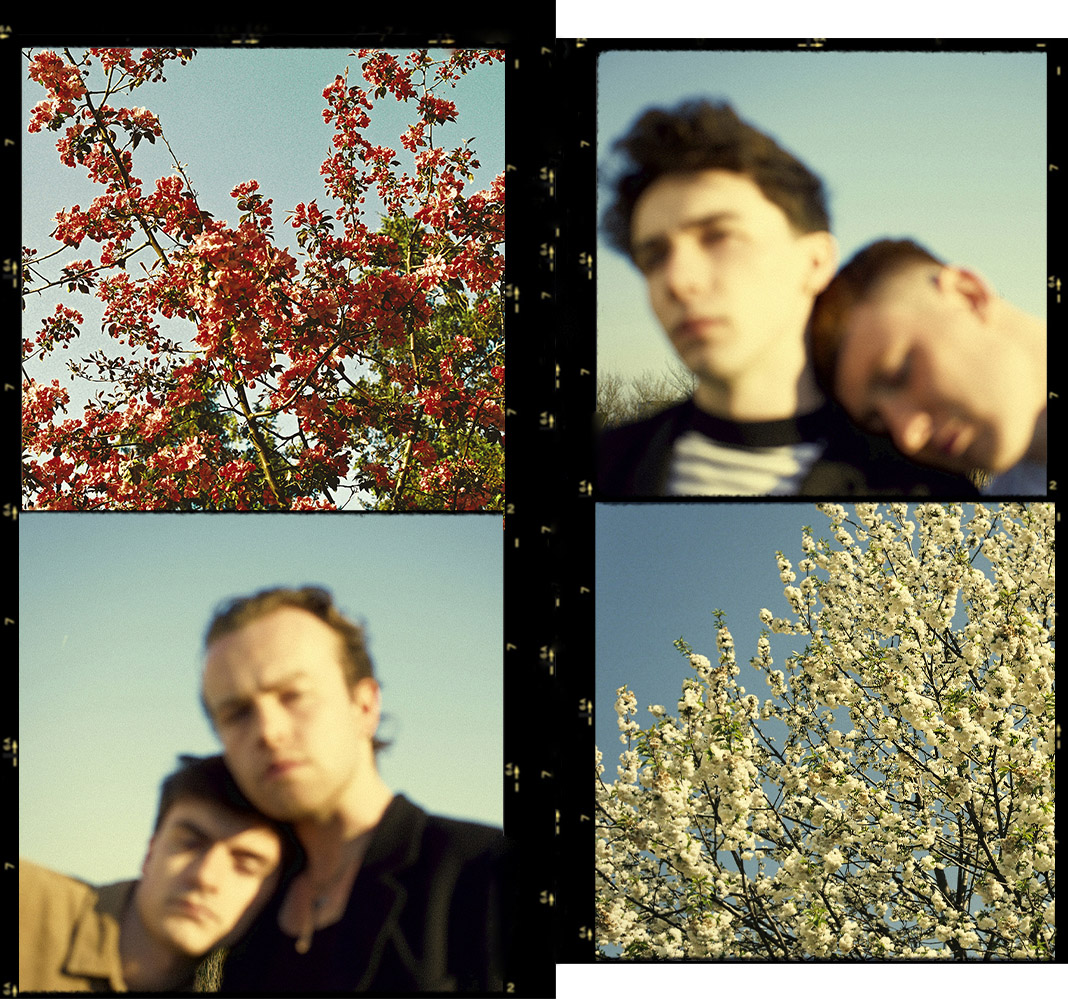
»One of the hardest things is to write a good pop song.«
Jonas:
You guys describe yourself as a “four-piece pop band based in Dublin.” What is your personal definition of pop music?
Mark:
For me, pop is a sort of music that anyone on the planet can sit down and hop on—unless you’re some sort of musical snob. It’s music that is the least esoteric it can be to the point that literally anybody can relate to it or just find it nice to listen to, even if they’re not paying attention to what occurs in the song and what it’s saying.
Conor K:
I agree. Years ago, we all went to music college. People there think sometimes that pop is a dirty word and you rather should spend four years being dedicated to learning bebop jazz. But in my opinion, one of the hardest things is to write a good pop song. Besides that, pop music is a cultural thing as well. Earlier today I was looking at the charts—the viral charts. And guess what? It’s all songs around TikTok which is now a totally new thing. It seems that we’re moving into that era of pop music now and that feels very exciting. Even if you don’t like the music, it’s taking on a new sort of medium. It’s extremely interesting to see how we consume songs on that platform, how we consume music—pop music—in general.
Mark:
When you look at the charts, you even stumble across a country song sometimes. I think, today, the genre of pop isn’t an actual genre of music anymore like it was in the 90s, for example. Now it’s more a term for anything that anybody can enjoy and listen to.
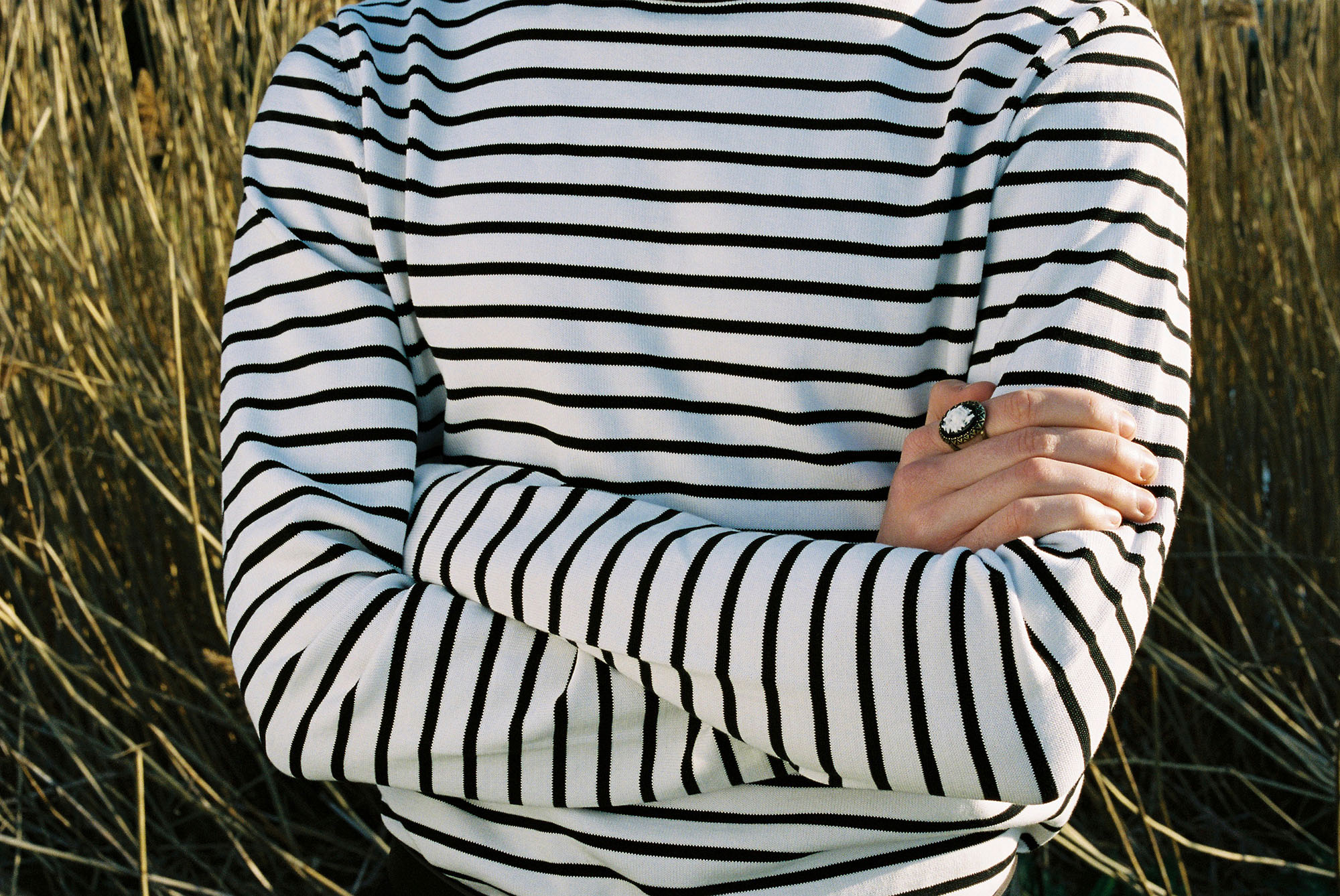
»Dublin’s like a small town that you can’t escape, but in a good way.«
Jonas:
Would you say that the fact that you’re located in Dublin, Ireland has a special impact on your sound and the way you make music?
Mark:
I think so. Dublin has a very strong culture among music anyway, and in addition to that, the city itself gives us a very specific feeling to grow up in, meeting all kinds of people very easily. It’s like a small town that you can’t escape but in a good way. I don’t think we have, but sometimes there are people from Ireland who maybe feel obligated to be artistic because of the history of our culture. There are probably a lot of bands in Dublin and around the city who definitely feel an impact on their music in that way.
Conor K:
Even from an outside perspective, if you want to make music in Ireland, you have to be based in Dublin. The city plays such an important role in terms of art, the Dublin scene is quite the Irish scene. I’m not saying I agree with that, but that’s just the way it is. It would be a very big waste of time when you’re actually based in rural Ireland and trying to do things that you can only do in Dublin.
Morgan:
In my opinion, another big factor is that the music scene in Dublin with all of its artists, promoters, or bookers involved is quite a small group of people. I think it really helps that it is so small and personal because it feels very attainable from very early on. And it’s a lot less haunting because you always have the right people around. Playing shows in the right places isn’t going to take very long. Being a young musician in Dublin, it seems that there’s a community developed just for you. That environment has been very helpful to us—and it may not have gone that way in another city.
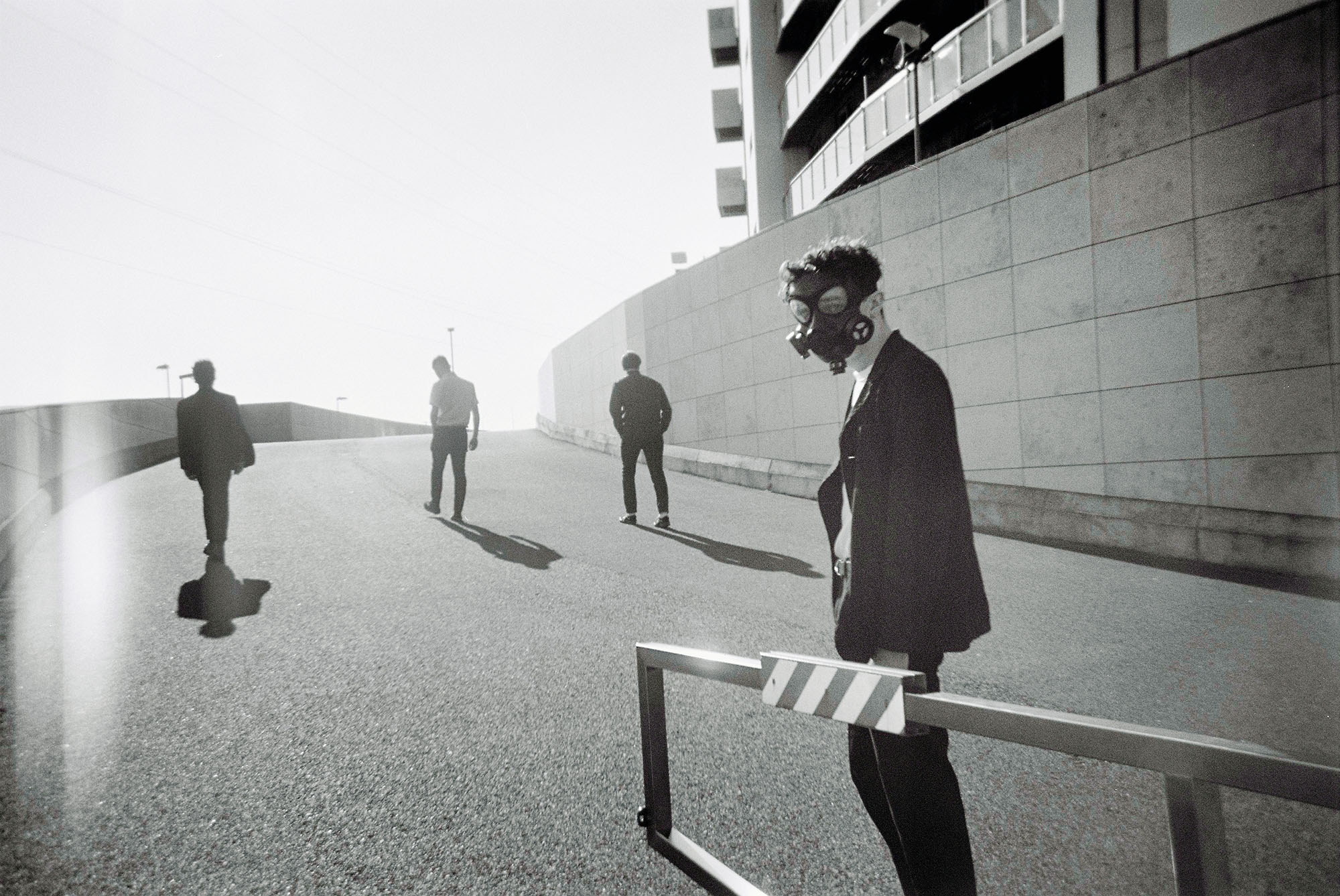
»We also wonder how it would be as a band to just exist online in the future.«
Jonas:
How do you perceive this Dublin community in the current time, facing a worldwide pandemic crisis?
Conor K:
It’s a very welcoming community, right now it feels that everyone wants everyone else to do well. I spoke to other people who live in London, for example, they said that it’s a very different atmosphere there at the moment.
Mark:
Yeah, but that doesn’t change the fact that the music scene is struggling all around the world in these times. People are looking for other ways and strategies, essentially trying to find out what works online. We also wonder how it would be as a band to just exist online in the future. We don’t know how things are going to be after this crisis, we don’t have any idea if live music is going to be as popular as it was before. So, we definitely are preparing for being an internet band anyway (smiles).
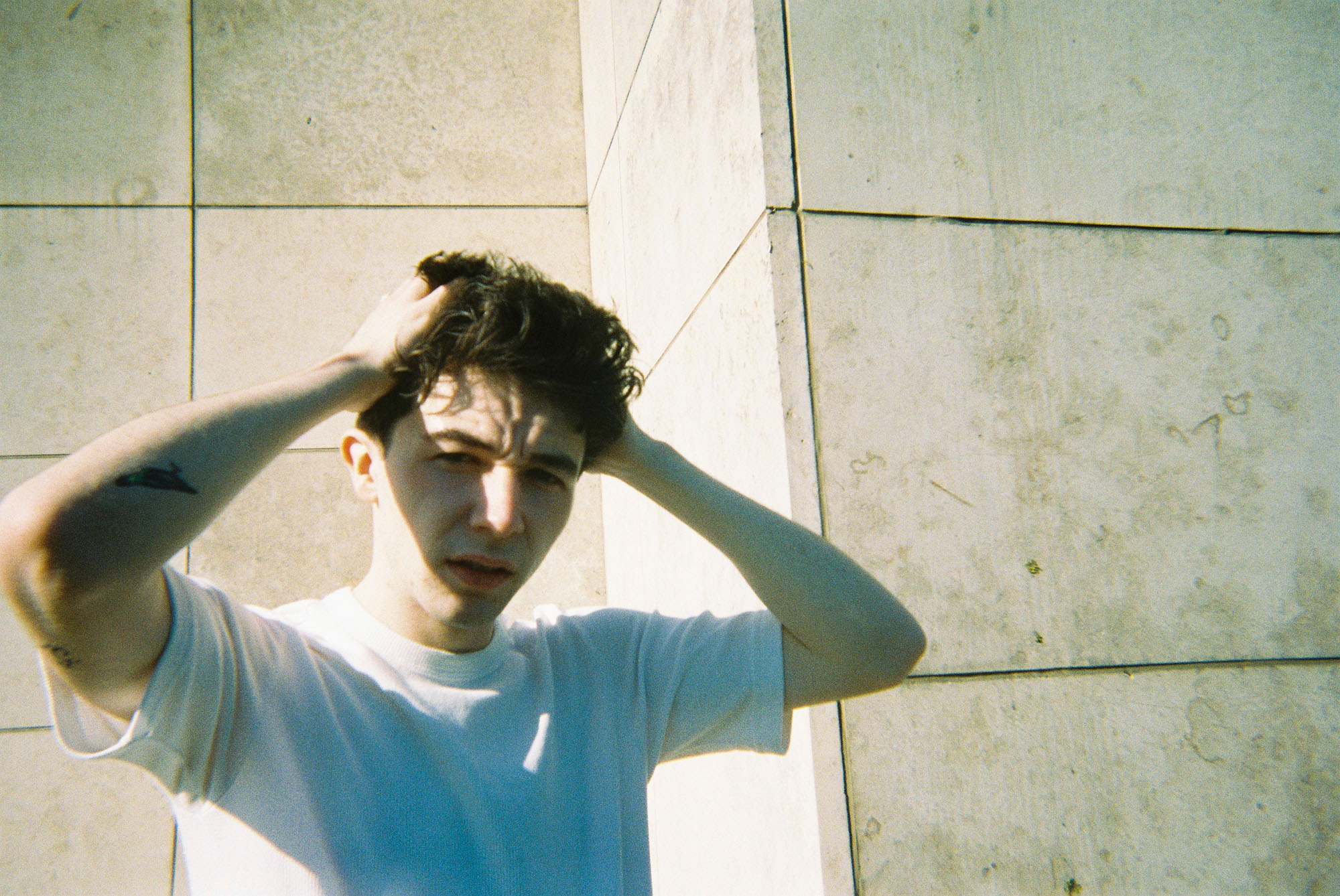
»Having no fear was—straight from the beginning—a big part of Milk.«
Jonas:
You guys have created a very distinctive and individual musical fingerprint, something that you immediately recognize when you listen to it. Was it a conscious decision to form a sound like that? Or was it more a random product of hanging around and making music together?
Mark:
It all started with Gormy and me who made a lot of demos and kind of ran into Adam, our current producer. With him, we created more demos, recreated specific sounds, and so everything just came together when we did “Drama Queen.” We decided that we wanted to have certain guitar and ambient sounds that we kind of stick in the background, that was a style we liked. So, yes, there’s definitely a specific sound, but I do think that in the future we will be open to change and progress it.
Conor K:
Morgan and I came a bit later to the band. It was at a time when a lot of demos had already been bashed out and there were different ideas in place. But with us also being a part of the band now, I could tell that there was still a big willingness to just try things—with a lack of fear. I think a lot of people can fall into a trap in such a situation, but Mark and Gormy were very embracing and open to our ideas. Having no fear was—straight from the beginning—a big part of Milk., I would say.
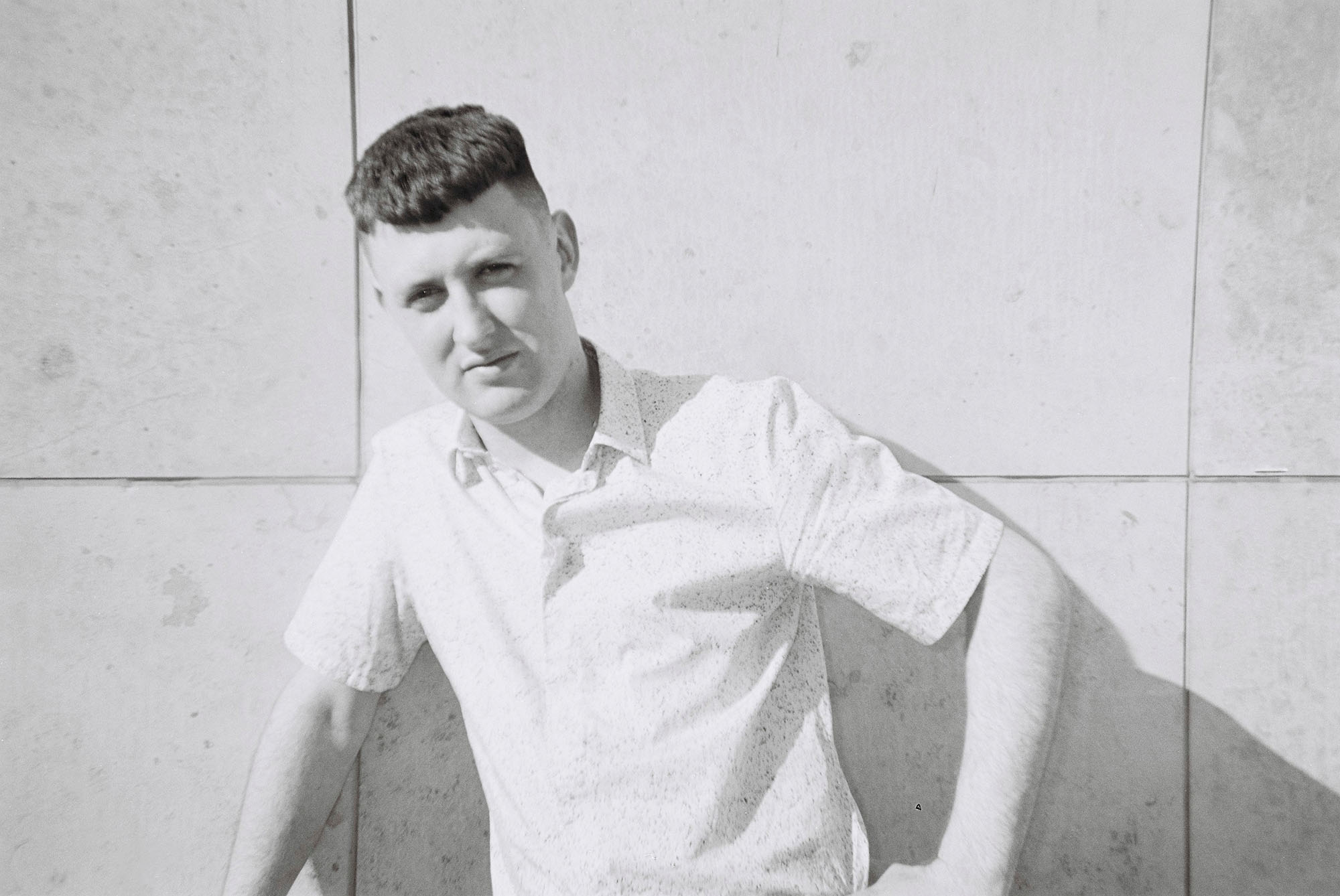
»Nowadays, if your sound is poppy and you’re performing live, you’re gonna get admired too much.«
Jonas:
I found a couple of reviews that compare your music with The 1975. Are you annoyed by such comparisons? Or is it something you can embrace and appreciate?
Mark (laughs):
I think that’s typical art stuff. Nowadays, if your sound is poppy and you’re performing live, you’re gonna get admired too much…
Conor K (also laughing):
It’s an easy decision to come to an artist, saying “You sound like that.” And with The 1975, it’s an easy comparison because the band is very well-known. But to be honest, I never really had a deep dive into reviews of that kind. I think they just take a lot of inferences from different things—and we do the same.
Conor G:
But isn’t that the way music works in general? As a musician, you’re permanently influenced by so much other stuff that—in the end—gets you to progress your own sound. So do we, so did other bands before us, so will others do in the future.
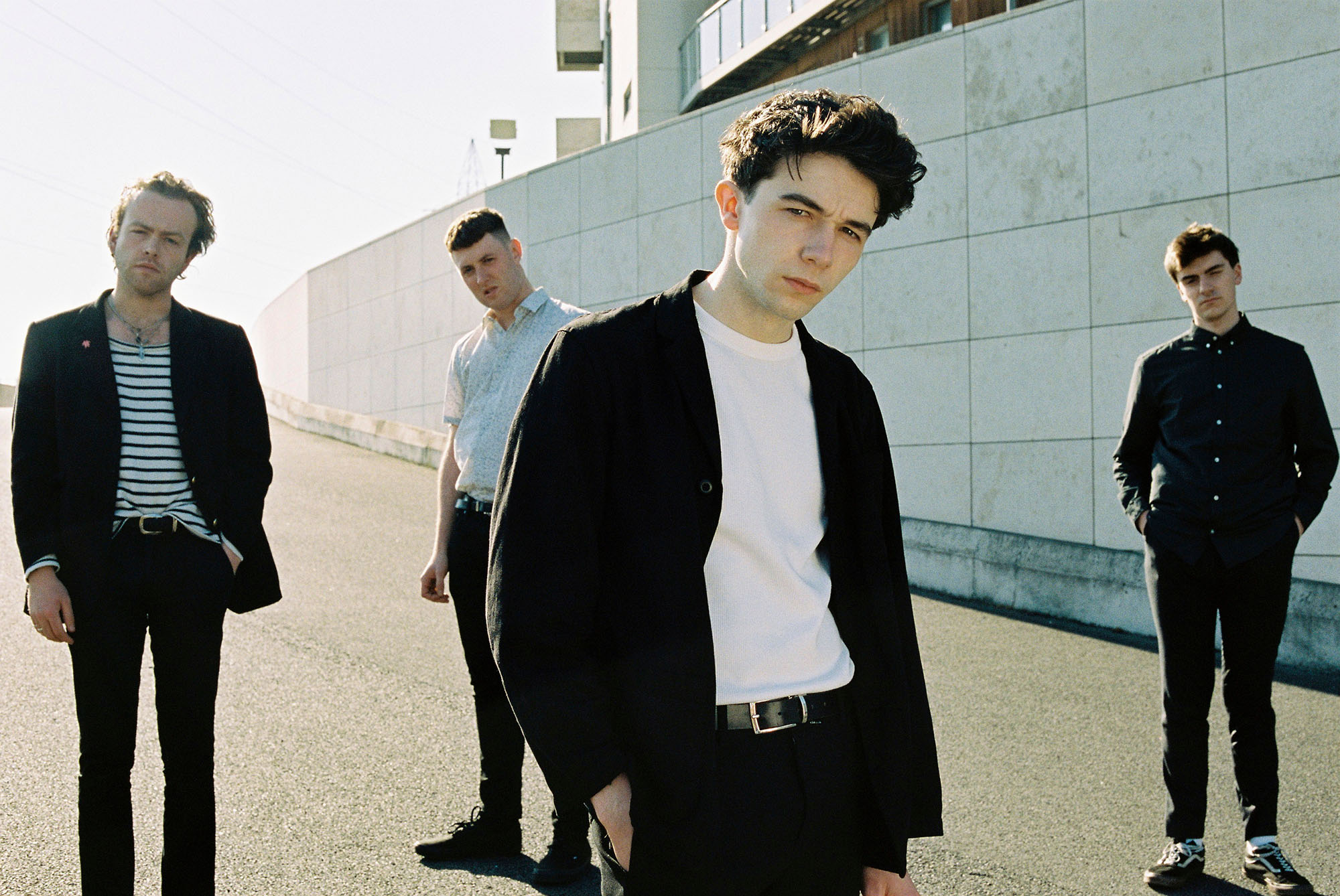
»You can always turn it into something totally different and simultaneously stay true to yourself.«
Jonas:
Last year Missy titled an article about you with the headline “Meet your new music obsession, Milk.” Do you have a personal music obsession, each one of you?
Mark:
For me, probably it’s Bon Iver. I think he is very progressive and everything he does just sounds fabulous. He is never disappointing. And he is never afraid to put out something that wouldn’t be liked by the masses. It seems to me that he’s very experimental and just making songs, no matter if it hits a certain group or not. If you think about his first album and his much more recent release, it’s a massive change sonically. It’s important to take that on board with your own music, wherever you start. You can always turn it into something totally different and simultaneously stay true to yourself. And no matter if it’s good or bad, in the end you will maybe be the first person who created that.
Morgan:
It’s that kind of distinct sound that Bon Iver has, but also with the obvious kind of emphasis and risk-taking to push the envelope and try something new. He always has a sonic fingerprint embed in his songs, so you directly know that it’s him. But he also has a great freedom to make all kinds of different sounds—and I guess that’s a similar kind of aspiration to what we do. I mean, I would never compare myself to such a huge monolith, but he’s definitely someone we really enjoy listening to. Besides that, we all have really varied tastes and listen to very different music. I think that’s one of the main reasons why our own songs have become so varied and we have so many different avenues we can take. We make what we like listening to. So, the entire process is as fun as it can be. And I’m sure Bon Iver has a similar spirit.
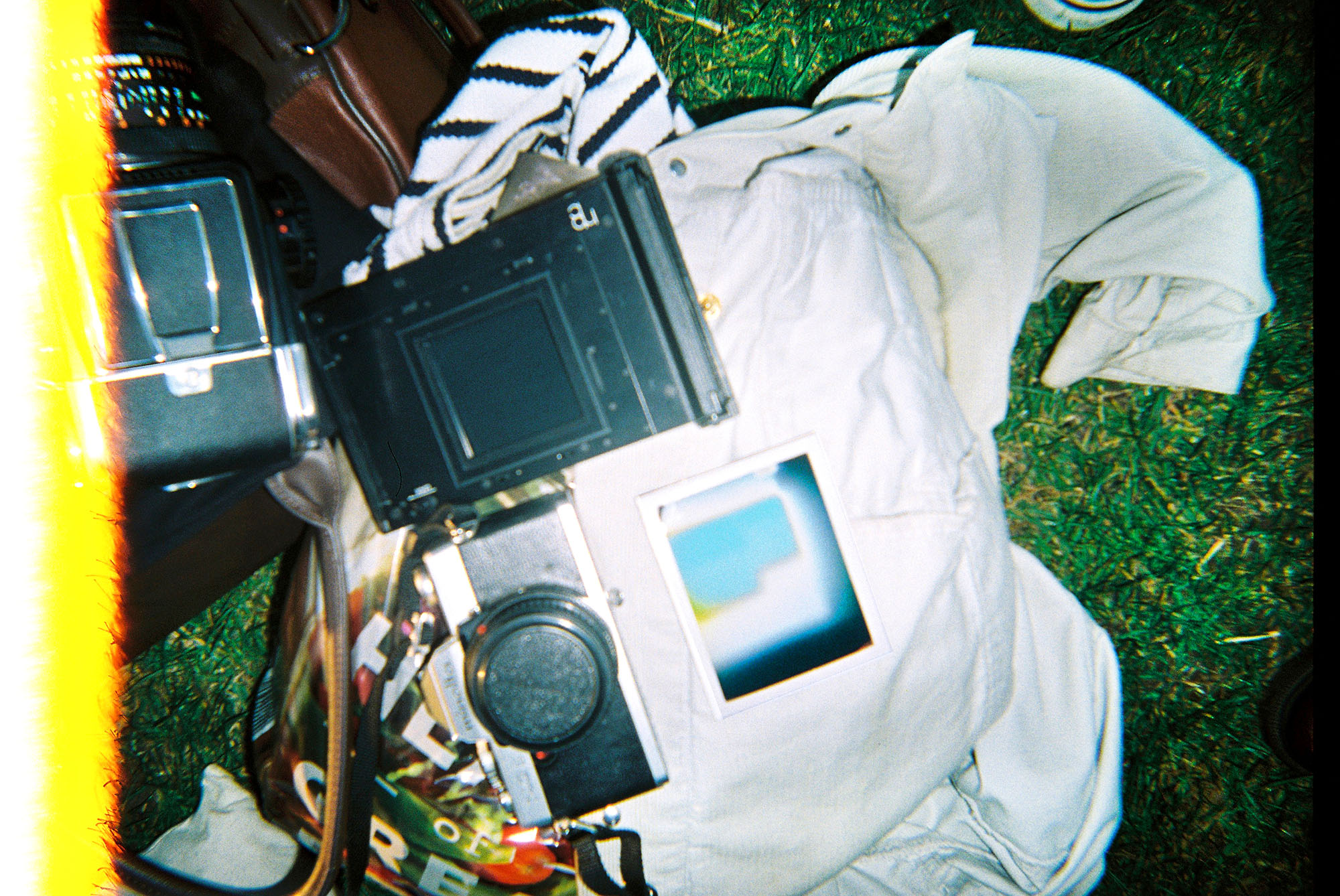
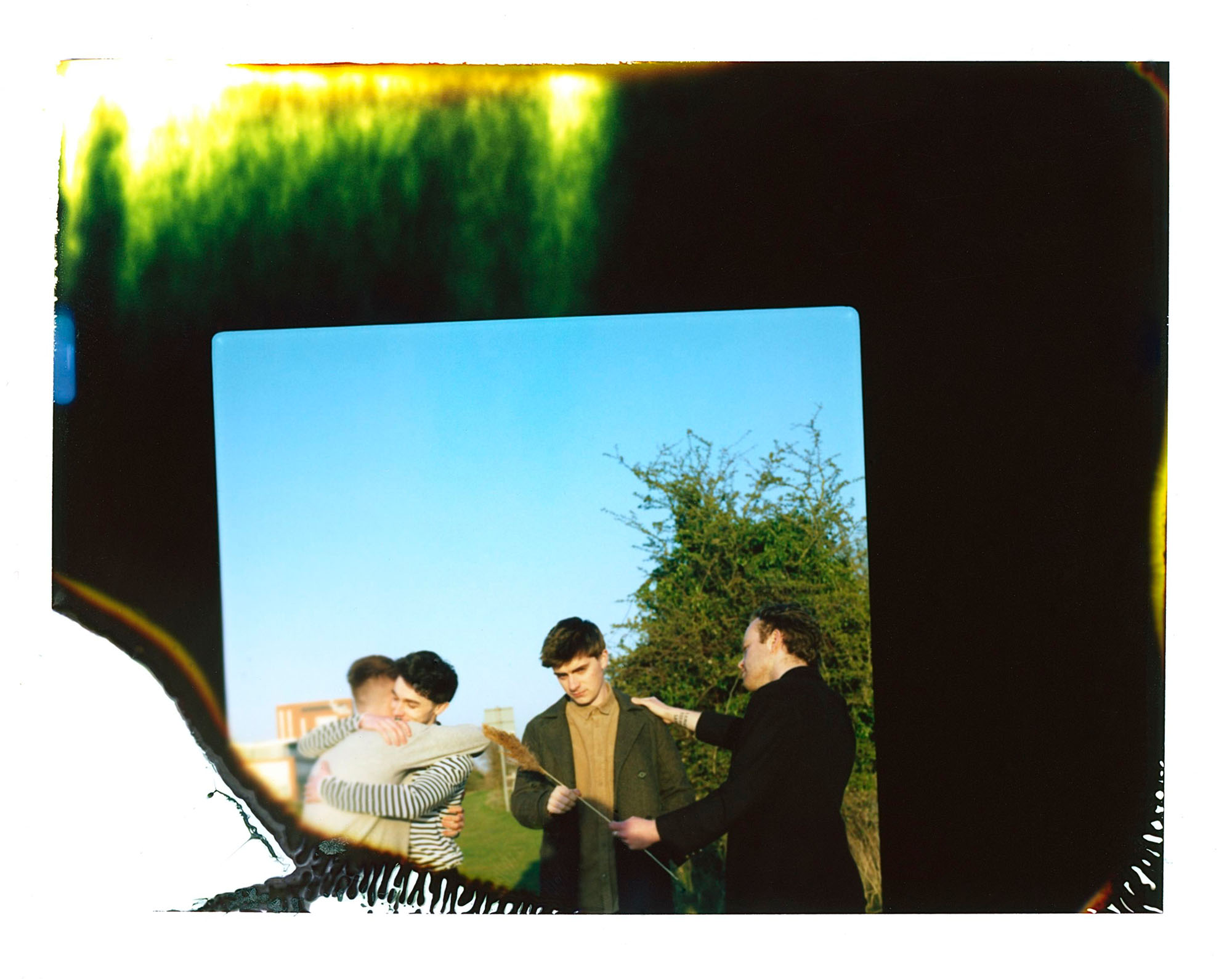
»We’re inspired by artists who are not afraid.«
Jonas:
Conor and Gormy, what about you? Do you have a special musical obsession?
Conor K:
I consider myself a big fan of hip-hop, so it’s kind of funny to echo what Mark and Morgan are talking about. When you take the first records of Childish Gambino and probably Tyler, the Creator, for example, they also sound like they’re from different artists. I think Mark, Morgan, and I are totally on the same page because we’re inspired by artists who are not afraid. That might also be the reason why The Beatles are one of my all-time favorite bands—all of their songs are totally different.
Conor G:
I would say my obsession has shifted from listening to production. It’s all about making something, that’s why I would say I listen to songs or albums in a different way. It’s not only the lyrics and the melody, I’m pretty into what’s lying underneath and what matches the text and the tones to accentuate them. That’s what I connect with and where a lot of my ideas start.
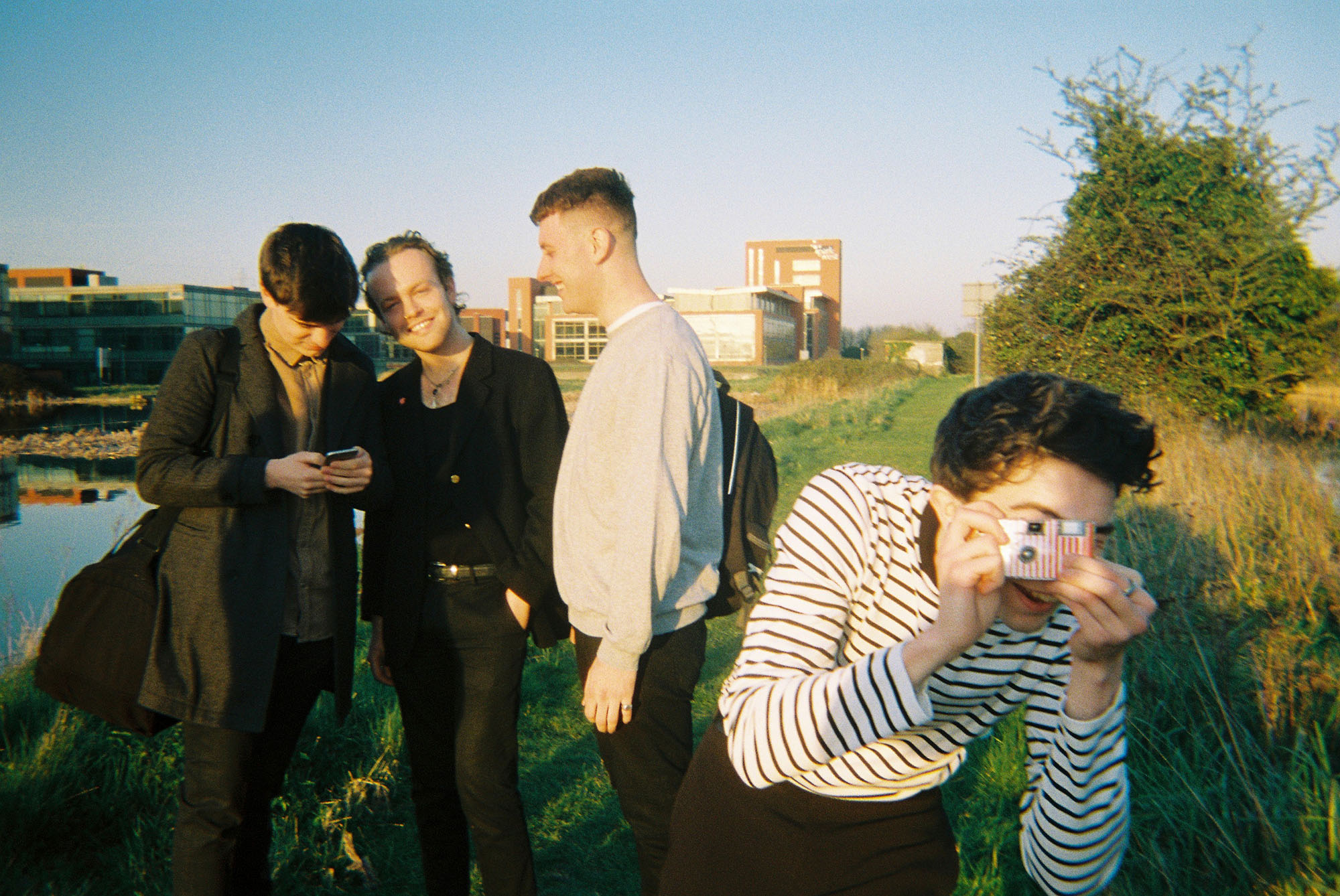
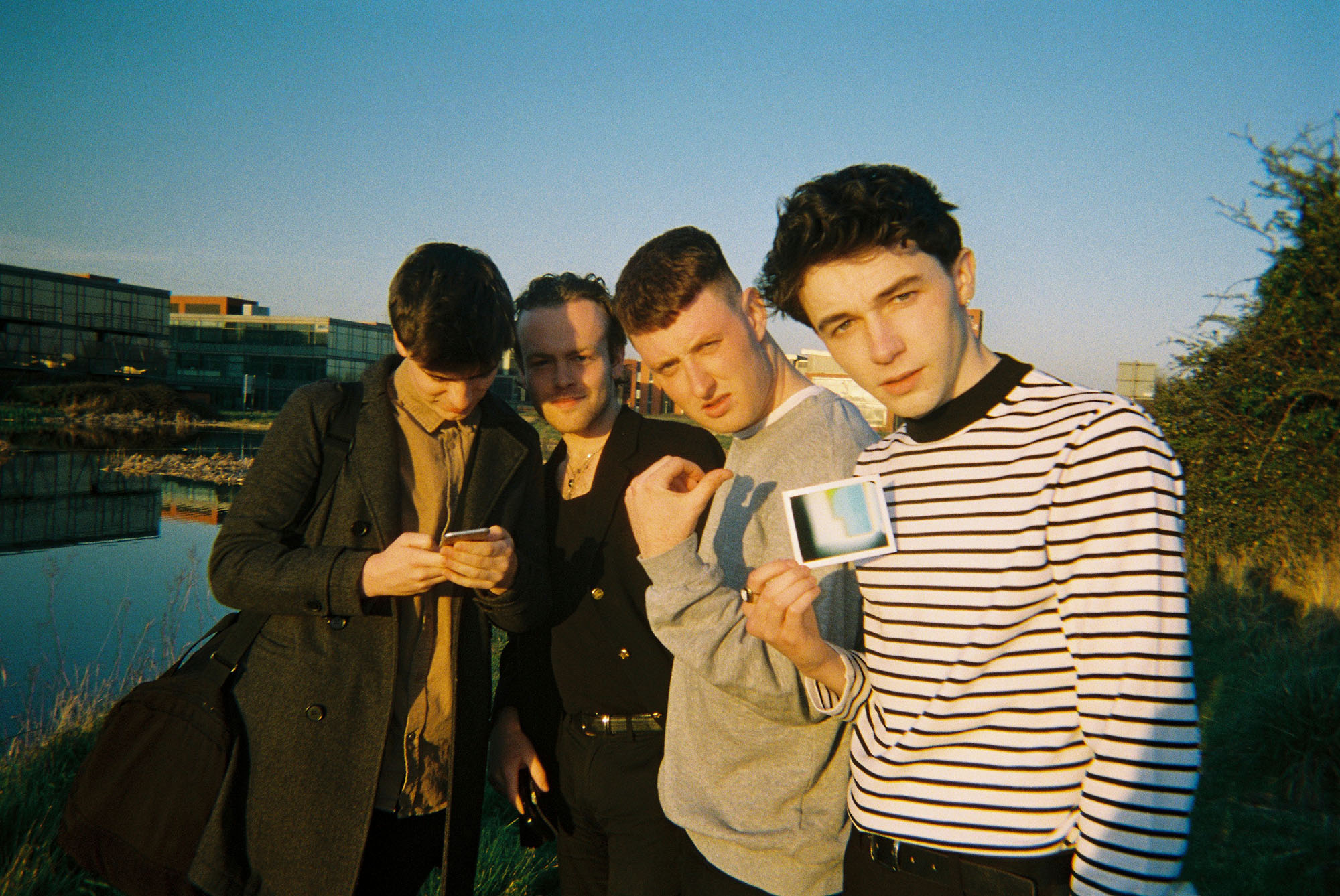
»It’s totally fascinating how a glass of milk is turned into something that dangerous.«
Jonas:
Your band name is inspired by the book and movie Clockwork Orange, especially by its main character Alex who drinks milk with a lot of drugs in it. What exactly attracted you to that very special habit?
Mark:
It’s totally fascinating how a glass of milk—which is generally seen as a symbol of innocence that is so prevalent and common in the everyday life of a child—is turned into something that dangerous. What a dark twist! It’s amazing how much story and character you can put to a simple picture like that, everything that happens in the book and in the movie can be literally drawn back to that milk.
Jonas:
Have you already tried to “enrich” a glass of milk like that?
Mark (laughs):
Never! I don’t think I could do that.
Jonas:
In the event that someone would use your music for a film, what kind of film could it be?
Mark:
I think it could fit in any movie, but definitely in some kind of heartfelt teen coming-of-age film like Nick & Norah’s Infinite Playlist or whatever. It definitely wouldn’t be in Requiem for a Dream kind of stuff.
Conor K (laughs):
No, we would never do that!
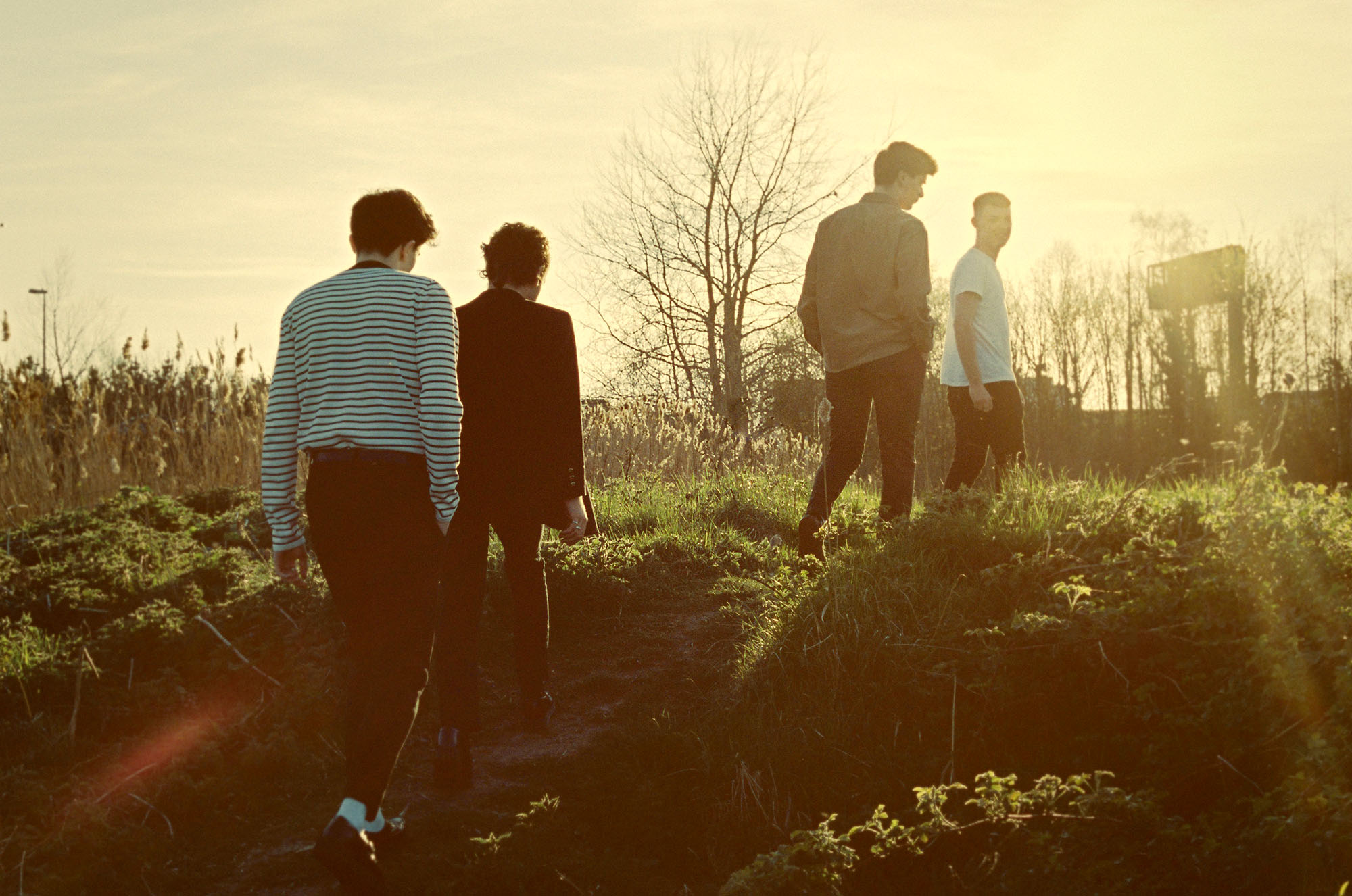
»When it comes to acting and music, for me it’s more of what seems more promising in the moment.«
Jonas:
Let’s stick to the movies. Mark, you’re also an actor and, looking at your Instagram profile, kind of a photographer too. Would you say that there is more than one heart beating in your chest? Or are these artistic fields merged inside of you, complementing and supporting each other?
Mark:
Definitely the latter! But first of all, I don’t consider myself a photographer, that’s just a hobby and I feel I offend professional photographers calling myself one (smiles). I think when it comes to acting and music, for me it’s less than taking the one or the other, it’s more of what seems more promising in the moment. That’s what I’ll do, wherever that goes for me in the future. Any exposure from acting is going to help me with the band. And any exposure from the band might help me with my acting. I never really thought that I have to choose between those two worlds, I just go with it day by day and see what happens. And whatever comes along, comes along.
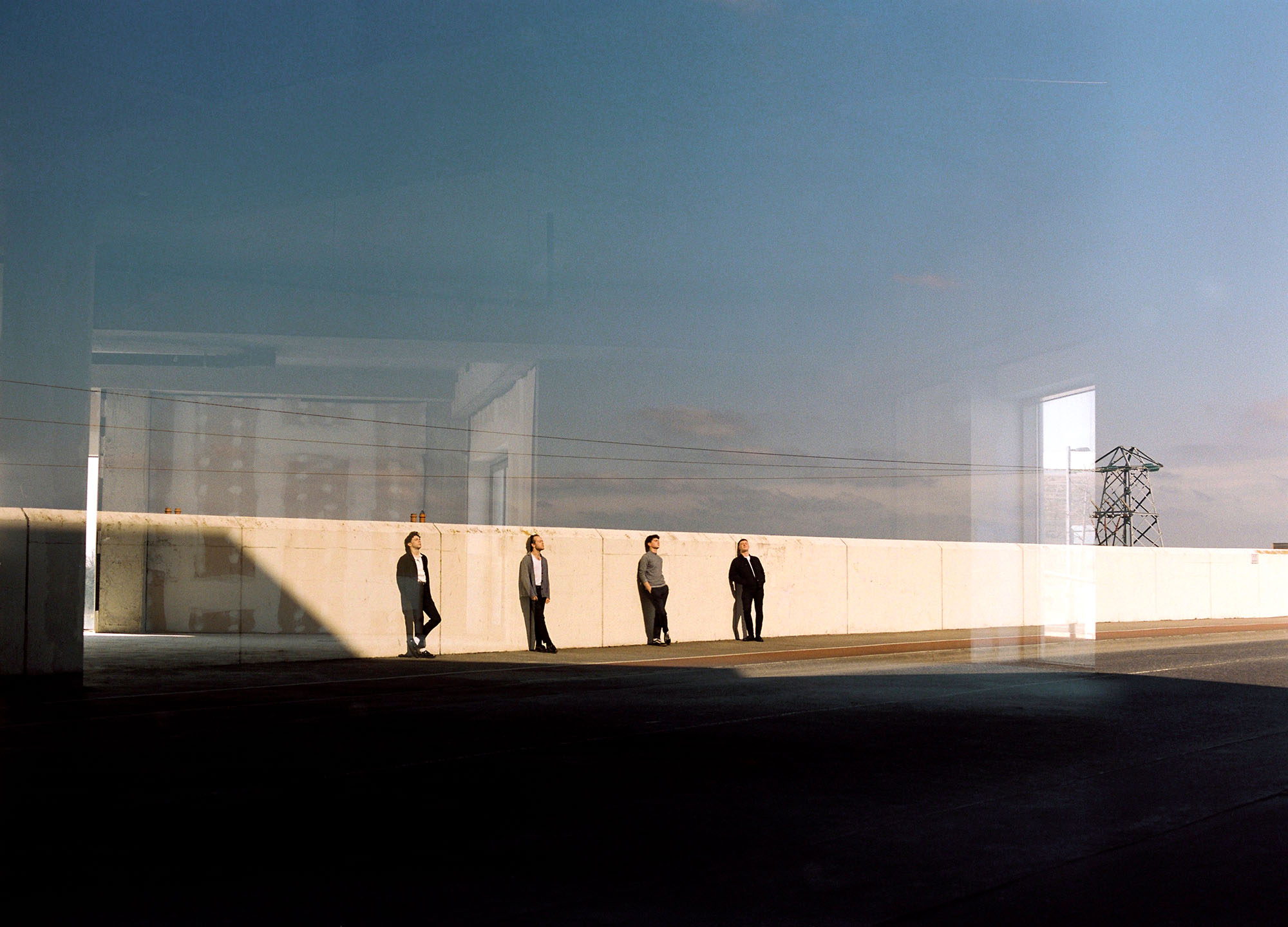
»Without such a big amount of help it may not have gone this well.«
Jonas:
Your band’s entire artwork and visual presentation are strongly connected to the photography of Gerry Balfe Smyth. Why did you choose him? What does his photographic style stand for and mean to you?
Mark:
Gerry does a lot of very red-brick Dublin kind of photography. He has a very unique style, nothing is posed or staged, he just goes out and finds interesting people.
Morgan:
And he has a very big heart. The shoot that he did with us was our first professional shoot ever, his experience and empathy helped us a lot, that can’t be overstated. We went in with very little information and he came to us with lots of ideas for locations and how the whole thing could go. I think without such a big amount of help it may not have gone this well.
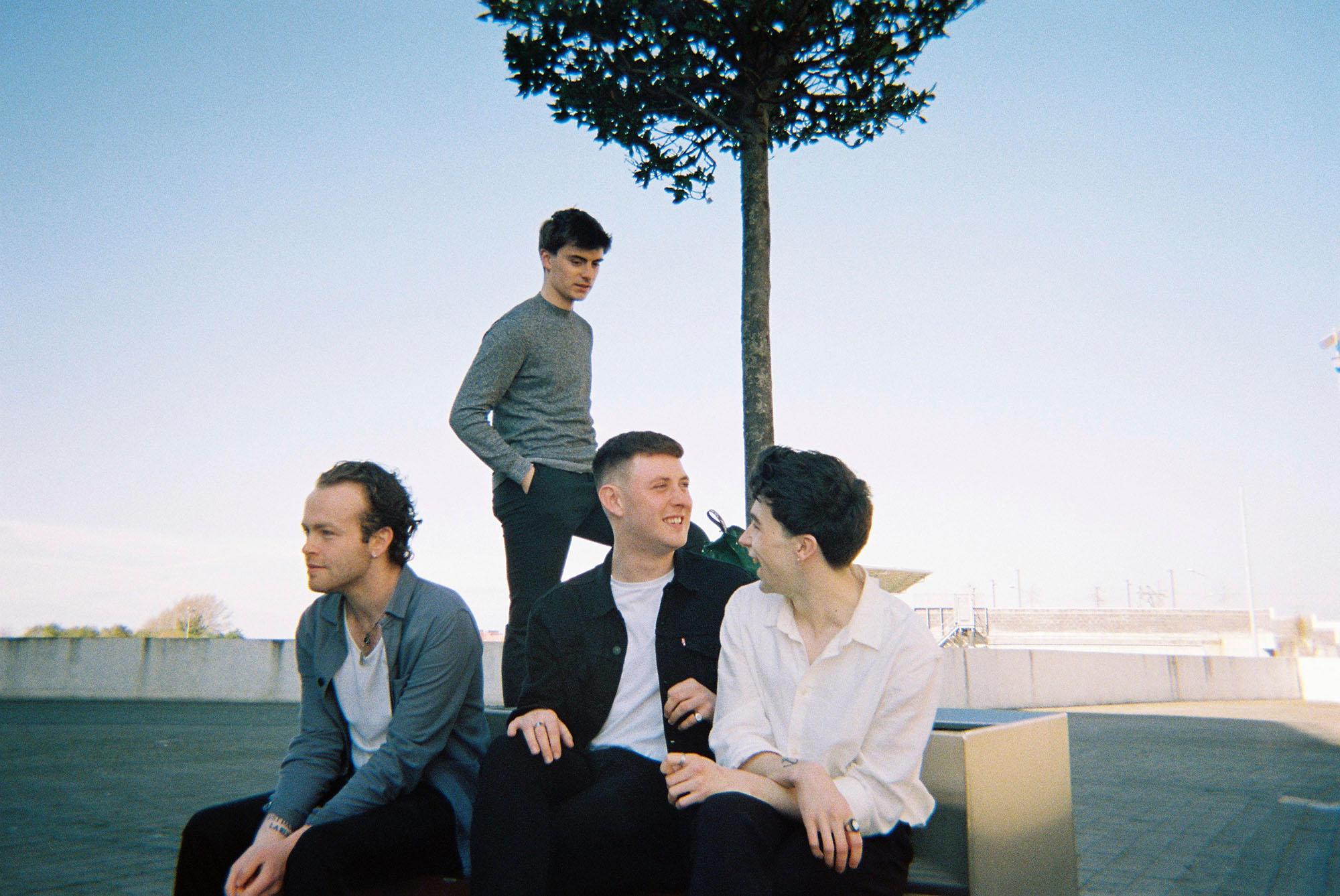
»That EP is a labor of love.«
Jonas:
You will be releasing your new EP shortly. What does this event mean to you, especially in times like these?
Conor K:
Releasing that EP is great because it’s a labor of love. It’s a big achievement for us because we’re not a band that goes in every Sunday, jams out and looks what happens…
Mark:
… yeah, it indeed took a very long time to record this EP, that’s why I’m just happy that we’re actually getting to put it out now. I wish we could perform it also on stage right now, but as long as people actually get to hear it in any way, that’s all that we made it for.
Morgan:
And it’s been really cool as well that, for the most part of this process, we haven’t had any support from others like I was saying before. That’s what really helped us as a group. I mean, we were all very good friends in the first place, but being able to create something like this in such a strange time with people who care about each other so much, that’s something very hopeful that has been reflected in the work and that people actually can understand and relate to. It’s just the four of us playing songs together and I’m pretty happy that I’m a part of it. It would be cool if I could do that forever.
»It’s better to focus on what we can control than focusing on what we can’t.«
Jonas:
As I mentioned in my first question, it’s been 15 months since you guys released your first song. If you look another 15 months into the future, what do you see? How are you going to do? What will have happened?
Mark (smiles):
Hopefully we will be fine, have another EP or even an album out—and will be no longer locked in the house.
Conor K:
As much as we’d like to play at many different places and do other stuff, we also want to focus on our music at the minute. I don’t think we’ve done enough to warrant saying, “Oh well, in 15 months I’m not going to be happy unless x, y, z happens.” It’s still important for us to try things out—and I personally just love to continue doing that.
Mark:
Yeah, I think it’s better to focus on what we can control than focusing on what we can’t. Whatever happens, happens.
Conor K:
What an end! (All laugh)
#milkthemusic #vacuum #jonasmeyer #gerrybalfesmyth #mypmagazine
More from and about Milk.:
milkthemusic.com
instagram.com/milkthemusic
facebook.com/milkthemusic
Interview & text: Jonas Meyer
Photography: Gerry Balfe Smyth
Editing: Ben Overton
